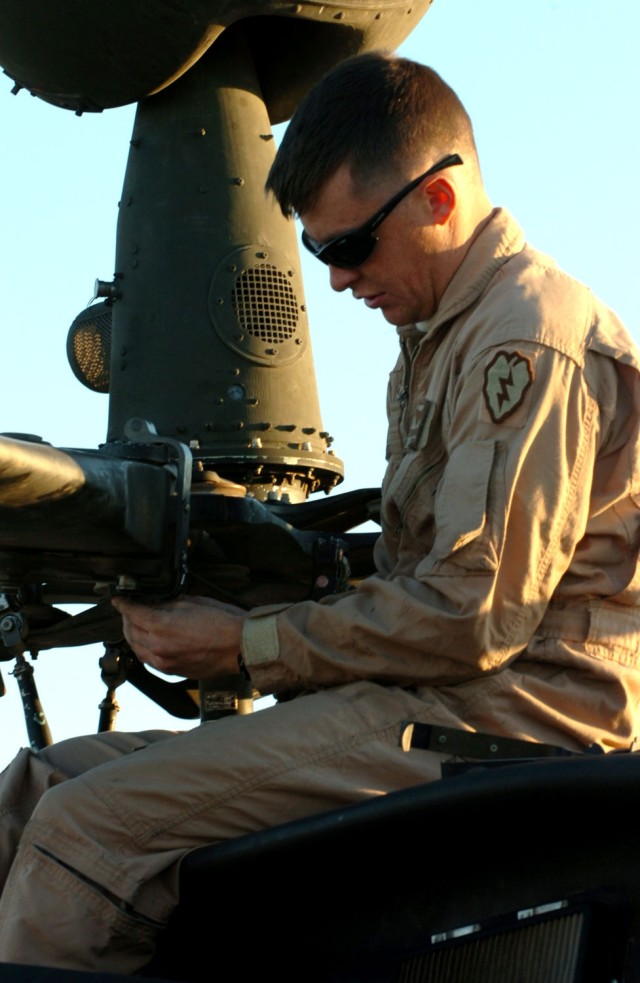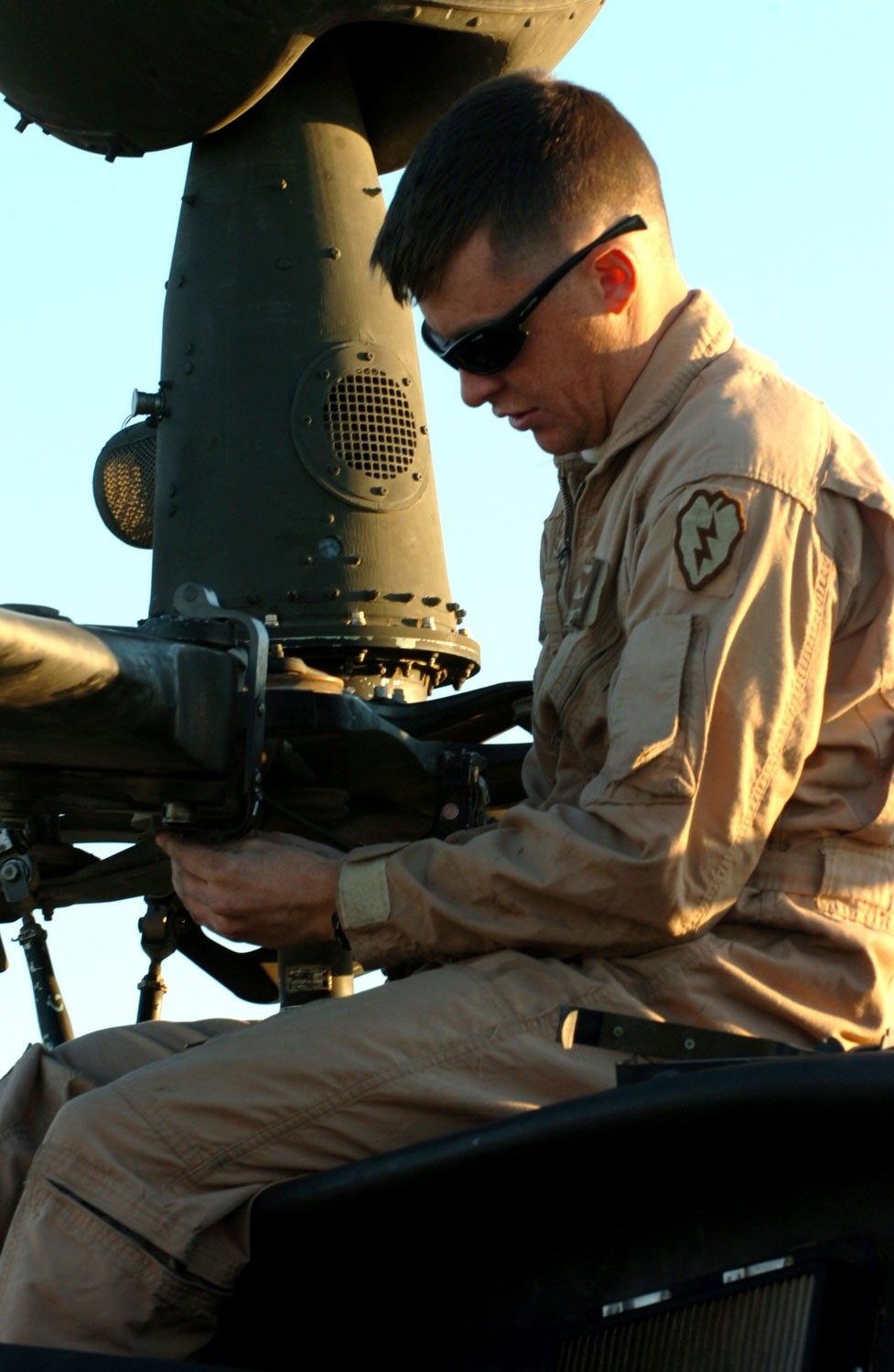
KIRKUK - Troops on the ground are much more comfortable carrying out their mission with the protection provided by helicopters in the air. Those helicopters would never launch, however, without the skilled hands of the "silent warriors" who keep them in the air.
The crew chiefs in C Troop, 2nd Squadron, 6th Cavalry Regiment work around the clock at Forward Operating Base Warrior to maintain OH-58D Kiowa helicopters and ensure their readiness to provide ground support for their fellow 25th Infantry Division Soldiers.
The stable of Kiowas maintained by C Troop have logged more flight hours than most other cavalry units in Iraq so far, according to Capt. Tim McGrew, troop commander.
"I call them the silent warriors because without their hard work we wouldn't be able to do what we do," McGrew said.
The crew chiefs conduct daily maintenance based on a Kiowa's number of flight hours, regularly scheduled inspections and repairs to normal wear and tear the helicopters undergo while conducting missions in Iraq.
"We work on the helicopters, fix them and get them back up in the air to cover the ground guys and support them," said Spc. Warren Buchanan, crew chief.
There are maintenance crews on duty 24 hours a day rotating among three shifts. Their responsibilities are divided between preparing the Kiowas to launch, launching them and then conducting maintenance when the helicopters return.
Keeping the Kiowas in the air is critical as they are the most flexible asset the brigade has on the battlefield, said McGrew. They enable pilots to conduct reconnaissance missions and locate improvised explosive devices that may not have been seen from the ground.
From the air, 2-6 pilots are also able to make positive identification on the enemy and maintain contact with them.
"Our helicopters have the capabilities of flying over the enemy," Buchanan said. "The guys on the ground can be informed of what their dealing with in their area."
Buchanan and his fellow crew chiefs must contend with the Iraq environment to maintain the Kiowas. They do more preventive maintenance here to account for dust, and work through the heat, sandstorms and cold to make sure their helicopters are always ready.
"No matter what, the Kiowas have to be ready to provide the best support on the ground possible," Buchanan said.

Social Sharing